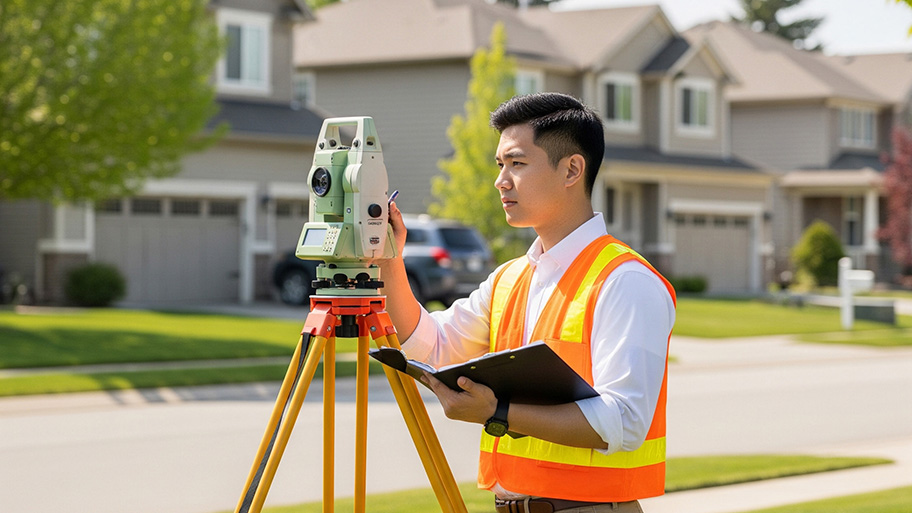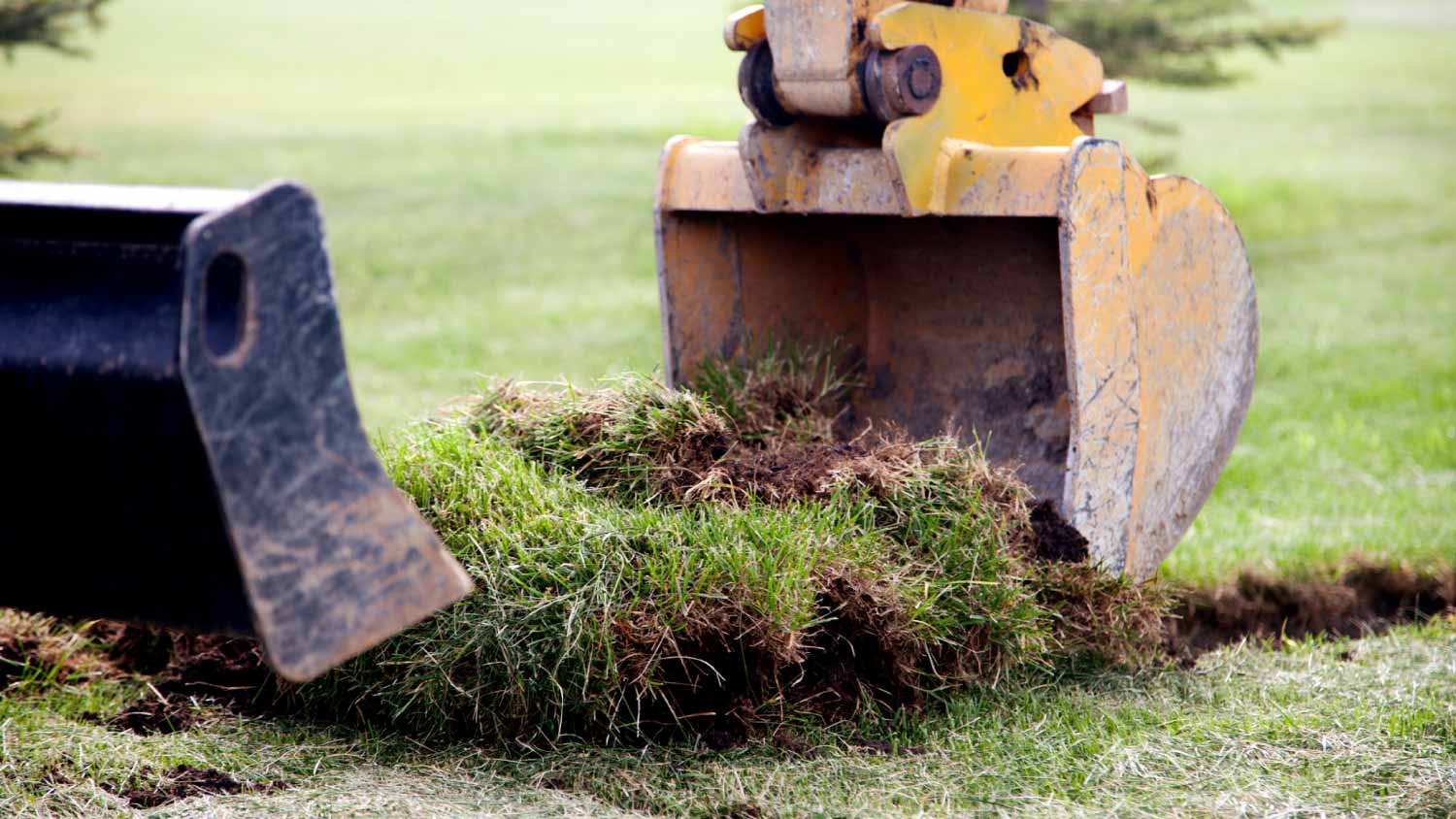
Just bought a plot of land and need to get it build-ready? Learn how much it costs to clear land to gauge your initial budget before you break ground.
The average elevation certificate costs $600, with most homeowners paying between $400 and $750, depending on property type, location, and surveyor fees.


The cost of an elevation certificate depends on property size, local surveyor rates, site complexity, and whether you need rush service or additional documentation.
Only licensed land surveyors, engineers, or architects can legally provide elevation certificates, with fees ranging from $70 to $250 per hour.
Recertification after property changes can cost up to 50% of the price of a new certificate.
If you require an updated site map or property plat, you can expect to pay an additional $400 to $700.
This article was created using automation technology and thoroughly fact-checked and edited by an Angi Editor in accordance with our AI policy.
Homeowners pay an average of $600 for an elevation certificate, with most ranging from $400 to $750. Costs depend on property type, location, and the complexity of the survey. Some surveyors may charge per property or certificate. This guide will walk you through all the cost factors and help you understand what to expect for your project.
Understanding how much an elevation certificate costs means looking at more than just a flat fee. Let’s break down the main factors that affect what you’ll pay for this important document.
The type of property you own plays a major role in determining the cost of an elevation certificate. Residential homes, commercial buildings, and multi-family properties each have different requirements and complexity levels.
New construction projects may involve different procedures and documentation compared to existing structures. Multi-family or commercial properties often require more time on-site and more detailed reporting, which increases the cost.
Larger properties or those with complex layouts take more time for a surveyor to measure and document. If your home sits on a large lot or includes several outbuildings, expect your elevation certificate cost to be higher. Properties with multiple structures or unique terrain features (like steep slopes or water features) require extra surveying effort, which increases the fee.
Only licensed land surveyors, professional engineers, or architects can issue valid elevation certificates. Labor costs can be charged hourly or as a flat fee, and rates vary by experience, credentials, and local demand.
Urban areas with high demand may have higher rates, while rural regions can sometimes offer lower pricing. Surveyors may charge more for specialized expertise or when navigating complex local regulations.
| Professional Type | Hourly Rate | Flat Fee Range |
|---|---|---|
| Land surveyor | $175–$250 | $600–$2,000 |
| Professional engineer | $70–$250 | $700–$2,000 |
| Architect | $125–$250 | $600–$1,500 |
Some properties require extra preparation before the survey. If corners are inaccessible due to overgrown vegetation, fences, or other obstructions, you may incur additional fees. Surveyors may also charge for time spent gathering existing records or property documentation if you do not provide these upfront.
For difficult-to-access sites, extra site visits or specialized equipment can further raise the final bill.
Beyond basic survey fees, several other factors can influence how much an elevation certificate costs:
Rush order or expedited service fees if you need the certificate quickly.
Travel surcharges for properties located far from the surveyor’s office or in remote areas.
Administrative or document processing fees for required paperwork.
Fees for additional copies, digital files, or revisions to the certificate.
Building permit or regulatory fees in some localities.
Costs for updating or re-certifying the certificate after property additions or modifications.
Several add-ons may increase the cost of an elevation certificate, depending on your needs:
Site map or updated property plat: $400 to $700 if required
Re-certification after property changes: $25% to 50% of a new survey
These optional services can add value or convenience, but each comes with its own cost.
Let’s look at a few ways you can keep your elevation certificate costs manageable:
Get multiple quotes from local, licensed surveyors or engineers to compare rates and services.
Schedule during off-peak times to avoid rush fees or higher seasonal demand.
Provide existing property records or previous surveys to reduce the surveyor’s workload.
Bundle services if you need additional land surveying or property documentation for your home.
Prepare the site by clearing access points and removing obstacles before the surveyor arrives.
Ask about discounts for multiple properties or group rates if your neighbors also need certificates.
A little preparation and research can go a long way toward reducing your final bill.
When it comes to an elevation certificate, you cannot legally create a valid certificate yourself. Only local land surveyors, engineers, or architects can issue certificates that are accepted by FEMA and insurance companies.
The cost of hiring a licensed pro may seem significant, but it guarantees accuracy, compliance, and peace of mind. Professional surveyors use specialized equipment and have the training to ensure precise, legally defensible measurements.
A certified professional brings expertise that protects you and your property when obtaining an elevation certificate. Here’s why it’s best to work with an expert:
Working with a certified professional ensures your elevation certificate is accurate, reliable, and accepted by insurance companies.
Experienced pros reduce the risk of errors that could affect your flood premiums or insurance coverage.
Pros know how to identify property-specific factors that impact elevation and flood risk.
Experts can complete the process efficiently, saving you time and stress.
If you want to participate in the process, focus on smaller tasks such as:
Clearing the property of obstacles, debris, and overgrowth.
Take photos of your property for easy reference.
Mark general boundaries or key points.
Document any changes or features that could affect the elevation measurements.
Be prepared to discuss the type of elevation certificate you require, whether it is for residential, commercial, or new construction purposes.
Have a clear idea of your property size, boundaries, and structures.
Ask your professional about additional services, such as flood risk assessments or property maps.
Prepare for potential changes in your insurance coverage or premiums based on the updated elevation information.
Home is the most important place on earth, which is why Angi has helped more than 150 million homeowners transform their houses into homes they adore. To help homeowners with their next project, Angi provides readers with the most accurate cost data and upholds strict editorial standards. We extensively research project costs to develop the pricing data you see, so you can make the best decisions for you and your home. We rely on reputable sources, including the U.S. Bureau of Labor Statistics, academic journals, market studies, and interviews with industry experts—all to ensure our prices reflect real-world projects.
Want to help us improve our cost data? Send us a recent project quote to [email protected]. Quotes and personal information will not be shared publicly.
From average costs to expert advice, get all the answers you need to get your job done.

Just bought a plot of land and need to get it build-ready? Learn how much it costs to clear land to gauge your initial budget before you break ground.

A land survey can determine your property’s borders and settle property disputes. Learn how much a land survey costs and what can affect the price.

Discover site preparation cost estimates, including average prices, cost factors, and tips to help homeowners budget for their next project.

What is a property line? Find out everything you need to know about property lines, from easements to where to build a fence and how land surveys work.

Land surveys provide an accurate record of your property. Learn how long a land survey is good for and when you should have your property resurveyed.

Real estate transactions often require a survey, but who pays for it? Learn who pays for a land survey in most cases and some exceptions to the norm.